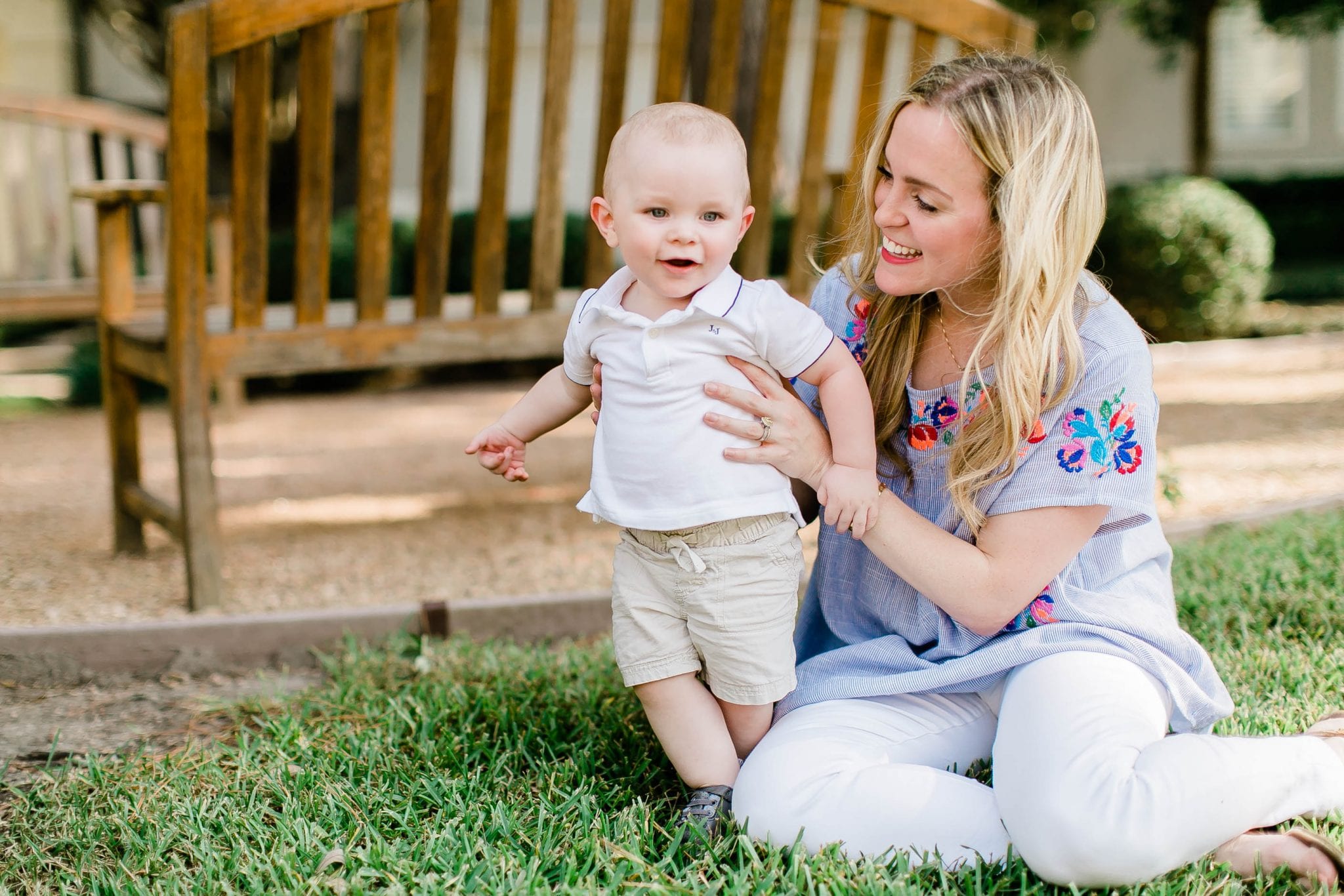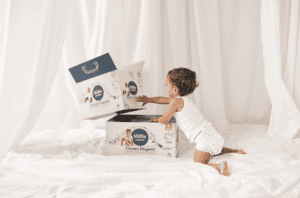Welcome to the toddler years! The years when you spend your entire day trying to keep your toddler safe as they explore the world that they now have some control over. At this age, children crave independence and are determined to prove they can do everything themselves. Our job is to foster the right amount of independence in toddlers to make them feel “big” while protecting and ensuring their safety.
How to Foster Independence in Toddlers of Various Temperaments
Some toddlers are more reserved and will not object to having your assistance with some things. In contrast, other toddlers are strong-willed and insistent that they strap into their car seats, get dressed, and push the elevator buttons themselves. Your child’s temperament can be a significant factor in determining how much independence they will be seeking. Research tells us a child’s temperament comes from their brain activity. Children with higher activity levels in their left frontal cortex tend to be more willing to explore unfamiliar places and objects. Children with more activity in the right frontal cortex tend to avoid unfamiliar situations and be more fearful, cautious, and reserved.1 Those who are more careful and fearful as toddlers tend to have better self-control later.7
Brain chemistry is not the only factor in temperament and a child’s craving for independence. A child’s experiences can affect both their brain development and their disposition. Parents can foster independence in toddlers and encourage a child who fears new situations, setting the foundation for freedom. Everyone has a unique set of character traits that makes them special. A substantial amount of this is genetic (i.e., we are hardwired this way). This can include levels of empathy and reactivity which will affect how intensely a child responds to things in their environment.2,3
If your child is fearful, you can provide encouragement and reassurance in new situations to set the foundation for healthy independence. Inversely, if your child is a risk-taker or tends to overreact in certain situations, keeping calm and patient will help them learn to regulate their actions and emotions. There is no right or wrong way to react to your child’s temperament and no good or bad temperament. It is vital to best support your child based on their specific needs and your parenting style.
Understanding How to Foster Independence in Toddlers
Independence takes shape in a few ways: language and communication, self-help skills, and emotional skills. It’s all about being in control of our environment and making choices or having autonomy over our lives.4 Our children can often feel small or powerless in their world, so they are instinctively driven to seek control (to feel more in charge and less fearful), and this usually kicks in during the preschool years.5
Let’s take a closer look at each of these areas and how you can foster independence in toddlers in a safe and supportive way.
Language and Communication
Language and communication skills begin to emerge as soon as your baby makes eye contact with you, but now that they have words to express some of their wants and needs, they are much more adept at making their needs known. Remember, your child may seem very verbal, but they still have a long way to learn vocabulary, spoken language, and non-verbal language.6 Try to give your child the language they need to deal with situations. If it is evident they are frustrated, teach them to say, “I am frustrated because . . .”. Don’t assume they can read all your non-verbal communication and understand how you are feeling. Toddlers are perceptive but still learning how to interpret non-verbal communication.6 You can explain to them how you are feeling with words such as, “I am not mad at you. I just have a lot to do today.”
You can also provide them with language and vocabulary to help them navigate social situations independently. You may practice scenarios with your child before a friend arrives for a playdate. “What will you say if Jenny wants to play with dolls but you want to play with Legos?” Then provide suggestions.
Self-Help Skills
This is probably the most significant area where toddlers want to prove they are big and independent. Allow your toddler as much supervised independence in this area as possible. Letting them pick out their clothes, dress themselves, and brush their teeth and hair empowers and builds self-esteem.5
It may be hard to watch your toddler select a pink tutu, pumpkin tights, and a green pajama shirt to wear as clothing, but allow it sometimes. You are fostering individuality and reinforcing their choices which gives them validation and feeds into their self-assurance and confidence.8
In general, try walking a middle ground. You can pull out one or two outfits and let your toddler choose which one they want to wear. Doing this provides some independence and autonomy, but you are still in charge. You might allow them to brush their teeth, but you set a timer, and they cannot stop until the timer dings, or you sing a song while they brush, and the brushing ends when the song ends.
During mealtimes, allow your toddler to help with food preparation. Place a stool beside you and put them to work mixing, slicing bananas with a butter knife, washing dishes, or shucking corn. Give them half a cup of milk in a measuring cup with a handle to pour into their cereal. Give them all the pieces of the sandwich separately and have them assemble it before they eat it.
Emotional Skills
This can be the most challenging area because it is not tangible. Remember your toddler’s emotional health, sometimes called mental health, is developing at this stage of blossoming independence. How you nurture this lays the groundwork for future emotional health. Toddlers need a lot of encouragement and support, and they look to you to fulfill that.9
It is essential to keep them safe but provide enough independence to give them a sense of pride and confidence in their abilities, choices, and actions.2 Give positive reinforcement as much as possible. When your child does something demonstrating their independence and practice of new skills, point it out and praise them. When my daughters were toddlers, we had sliced bananas as a side dish with almost every meal, and my husband and I consistently commended the chef and made a big deal about how helpful they were in preparing the meal.
Fostering independence in toddlers is a constant balancing act, but it is always about the process, not the finished product. If your toddler wants to help fold laundry, let them do it, praise them, and thank them emphatically. You can always re-fold after they go to sleep. Stay in control, but they don’t always have to know you are in control. Let them feel big by offering lots of choices, but make sure the options are all things you want.
Continue to talk to your toddler all day long, ask lots of “wh” questions (who, what, when, where, and why) to build their vocabulary, read books together, and give lots of advanced warning before transitions so they have time to adjust their thinking and acclimate to the change. For example, “You have five more minutes to play, then we will put on your shoes and go to the grocery store. While we are there, you can help me find oranges and peaches. I will need your help.”
The two of you will conquer these toddler years together!
































